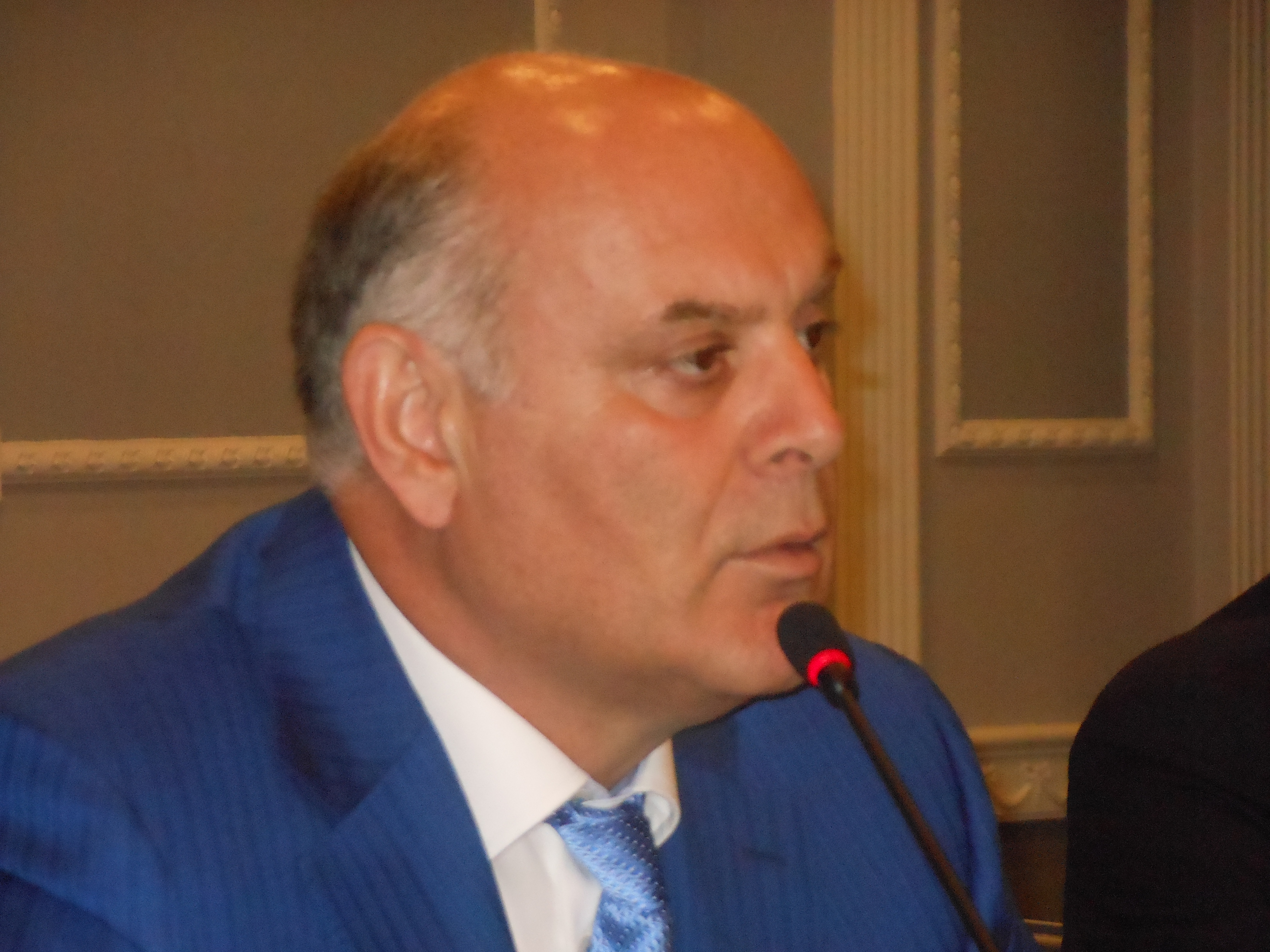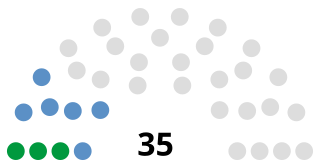
Raul Jumkovich Khajimba is the current President of Abkhazia, having been elected in 2014 after the May Revolution. He was also Chairman of the Forum for the National Unity of Abkhazia from 2010–2015. Khajimba previously held the offices of Vice President (2005–2009), Prime Minister (2003–2004) and Defence Minister (2002–2003). He unsuccessfully ran for President in 2004, 2009 and 2011.

The Prime Minister of Abkhazia is the head of government of the Republic of Abkhazia.
Sergei Shamba is a senior politician from Abkhazia. He is currently a member of the People's Assembly of Abkhazia and Chairman of United Abkhazia. He was Prime Minister of Abkhazia under President Sergei Bagapsh from 13 February 2010 until 27 September 2011. Between 1997 and 2010 he had been Minister for Foreign Affairs under both Bagapsh and his predecessor Vladislav Ardzinba, with only a half-year interruption in 2004. Shamba has twice unsuccessfully participated in Presidential elections, in 2004 and 2011. He has been a staunch proponent for dialogue between Abkhazia and Georgia.
Beslan Butba is a businessman and a former Prime Minister of Abkhazia. He owns Abkhazia's only private television station Abaza TV and is the chairman of the Party of the Economic Development of Abkhazia. Butba was an unsuccessful candidate in the December 2009 presidential election.
On 12 February 2011, Abkhazia held local elections for the 5th convocations of its local assemblies.

A presidential election was held in the Republic of Abkhazia on 26 August 2011. This was the fifth such election since the post of President of the Republic of Abkhazia was created in 1994. The election was held to elect the successor of president Sergei Bagapsh who died in office on 29 May 2011.
The elections for the 5th convocation of the People's Assembly of Abkhazia were held in two rounds on 10 and 24 March 2012.
The 4th convocation of the People's Assembly of Abkhazia was in place from 2007 until 2012.
The 5th convocation of the Sukhumi City Council has been in office since 10 March 2011.
The 5th convocation of the People's Assembly of Abkhazia has been in place since 3 April 2012.
Events in the year 2012 in Abkhazia.

Presidential elections were held in the Republic of Abkhazia on 24 August 2014. The sixth such elections since the post of President of Abkhazia was created in 1994, they were held early due to the resignation of President Alexander Ankvab on 1 June 2014 following the 2014 Abkhazian political crisis. Four candidates contested the elections, which were won by Raul Khadjimba, who received just over 50% of the vote.
Shamil Adzynba is the current First Vice Premier of Abkhazia in the Government of President Khajimba, and a two-time acting Prime Minister.
Zaur Avidzba (1953–2015) was a politician and businessman from Abkhazia who was murdered in 2015.
On 3 April 2016, Abkhazia held local elections for the 6th convocations of its local assemblies in all districts except Gali.
On 13 March 2004, Abkhazia held local elections for the 3rd convocations of its local assemblies, coinciding with early voting for the Russian presidential election of the following day. On 18 February, the People's Assembly rejected a proposal by President Vladislav Ardzinba to postpone the elections to coincide with the October 2004 presidential election, because all the necessary preparations had already been made.
Beslan Eshba is a vice premier of Abkhazia and the head of a sociopolitical organization Apsadgyl. Prior to his current position, he was a deputy commander in the Sukhumi battalion and an advisor to the President of Abkhazia.

Aslan Bzhania is a former Head of the State Security Service, a former Presidential candidate and one of the current leaders of the opposition in Abkhazia.








